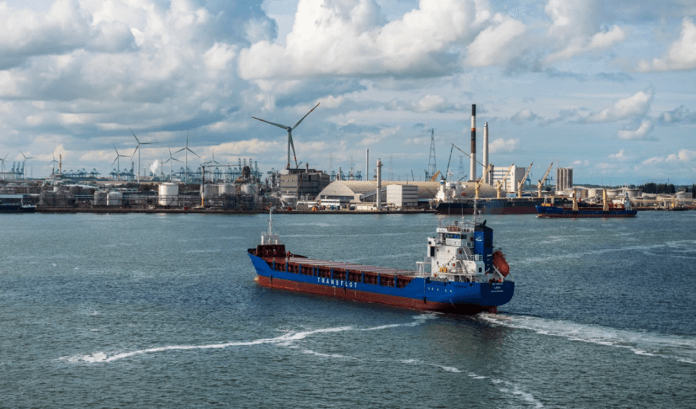The Belgian ports of Antwerp and Zeebrugge have signed a Memorandum of Understanding (MoU) with the Energy Ministry of Chile aiming to cooperate to create green hydrogen flows between Chile and Western Europe.
The three partners will collaborate on a regular basis in order to exchange knowledge, experience and other information to further explore the possibilities of their cooperation which, according to a statement, aims to eliminate the last barriers and gaps in the run-up to the effective start-up of green production in Chile, the set-up of the logistics chain between the continents and the logistics in the Belgian seaports and their hinterland.
In the MoU that was signed on Energy Day, 4 November, during the United Nations Climate Change Conference (COP26) in Glasgow, the three parties expressed their interest in collaborating on the important strategic issue of setting up a corridor between their countries to ship green hydrogen or derivatives, produced in Chile and received at the Belgian Ports, for further distribution to meet expected demand in Europe.
The two ports intend to become part of the Belgian and European climate solution by acting as early mover renewable energy hubs, making use of their infrastructures, know-how and network to import and deploy important volumes of hydrogen to the European hinterland.
“We are proud to know that Chile, the most significant potential exporter of green molecules, wants to cooperate with the ports of Antwerp and Zeebrugge,” stated the CEO of Port of Zeebrugge, Tom Hautekiet, who added, “This opportunity will allow us to realise our shared ambition of importing hydrogen to Europe together and our close cooperation will herald a new chapter for the energy transition in and of Europe.”
Furthermore, Jacques Vandermeiren, CEO of Port of Antwerp, commented, “We will continue to push forward our ambitions to make sure our entire fleet, eco-friendly and to further develop as a multi-fuel port, offering the alternative fuels that sustainable shipping requires.”
Chile has set very ambitious targets in order to become a carbon-neutral country by 2050 through its national Green Hydrogen Strategy, aiming to be producing the cheapest green hydrogen by 2030 and become one of the top three exporters of green hydrogen by 2040. Hence, the MoU signing is a further step towards fulfilling its sustainability commitments.
“Together with the industry, ports play an important role in finding solutions for our climate. For this reason, the agreement between the ports of Antwerp and Zeebrugge is an important milestone in the fight against climate change, making sustainable energy flows more accessible in Europe,” said Annick De Ridder, Alderwoman of Antwerp, responsible for the port.
Last but not least, Dirk De Fauw, Mayor of Brugge noted that the signing of the agreement will certainly open new doors for the ports of Zeebrugge and Antwerp. “The green hydrogen produced in Chile in the coming years will primarily be used for domestic consumption, but there are concrete plans to export green hydrogen to other parts of the world as well,” he said.







